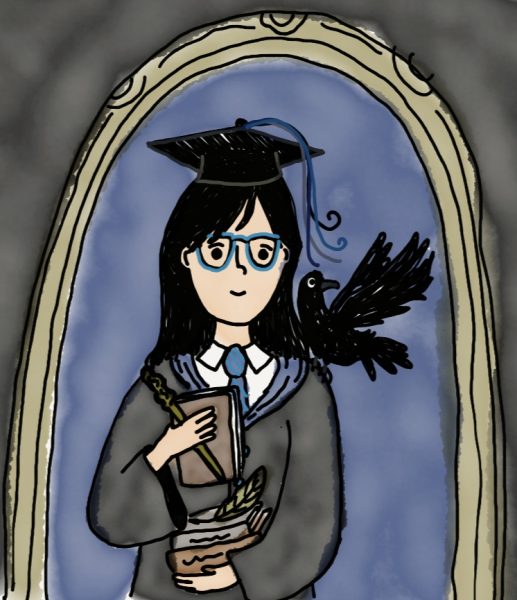Teachers, don’t fear ChatGPT. Learn to teach with it.
When ChatGPT was first launched on a late November day this past year, millions of people from different parts of the country speculated that their lives would be changed forever; people seemed to think that OpenAI’s ChatGPT, a chatbot powered by artificial intelligence, would put many writers out of business, make the jobs of English teachers in classrooms irrelevant, or make writing bland—or perhaps all three of these things. Yet many people continue to overlook the truth. People fear robot-writers like ChatGPT because they do their job well, maybe even better than humans do. That’s not necessarily a bad thing.
As time has gone on, the world of journalism and writing quality across the country has dramatically decreased in recent years. Three-quarters of both 12th and 8th graders lack proficiency in writing, according to the most recent National Assessment of Educational Progress. Additionally, 40 percent of those who took the ACT writing exam in the high school class of 2016, long before the start of the pandemic, lacked the reading and writing skills necessary to successfully complete a college-level English composition class, according to the company’s data. Not only do younger students lack proficiency in being able to write, but they also struggle to do it well. ChatGPT is able to help students build off of their already learned skills to be able to become better writers in our world today, while also providing a lifetime supply of information and research at one’s own fingertips. Banning ChatGPT in classrooms only harms lower-income students who don’t have access to the internet at home, while allowing other students who do to continue using it in the comfort of their own houses. Despite the fear of artificial intelligence, there is nothing wrong with being able to reference a website that organizes your thoughts in a clearer and more concise way than your own brain can.
But what about cheaters in classrooms? There will always be cheaters looking to cut corners. Let’s now say that the temptation to use chatbots for nefarious ends increases the number of cheaters to an (unrealistic) 20 percent. It makes no sense that teachers should deprive 22 students who can richly benefit from having to write papers only to prevent the other six from cheating.
For those who worry that using and encouraging the use of ChatGPT will decrease incentivization to create authentic, real writing, we must remember that although artificial intelligence may be able to organize our thoughts better than us, it could never take the place of English teachers in classrooms. ChatGPT is a tool for writing, but it cannot begin to teach students how to write unexpressed thoughts that are original and heartfelt.
Since the creation of this monumental milestone, many fear that ChatGPT can outperform our own writing skills. Yet as the Wall Street Journal best puts it: “when something new or weighty needs to be shared, we will turn to human writers who have the gift of conveying the unexpressed thought in words that are original and artful. That’s the kind of writing humans should do—and if that’s our destiny, we should embrace it, even if fewer of us do the work.”
Hello there! Our goal is to provide relavent, engaging journalism for readers of all ages. Your donation will support the student journalists of the Wolfpacket at Claremont High School, and will allow us to purchase equipment, print our monthly issues, and enter in journalism competitions. We appreciate your consideration!

Lucas Grannis is a senior at Claremont High School and a proud four-year member of the Wolfpacket staff. Rising through the ranks from reporter to assistant...







